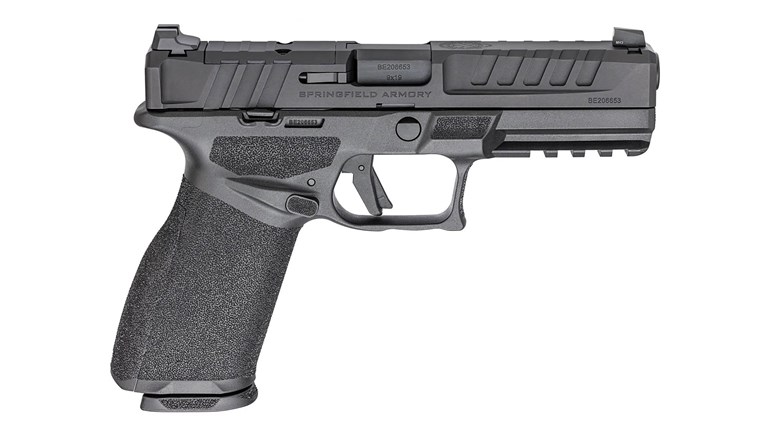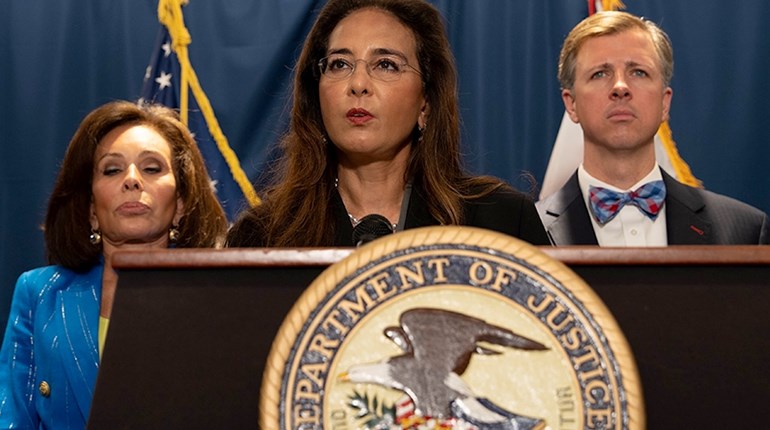
The U.S. Department of Justice (DOJ) launched a federal investigation into the Los Angeles County Sheriff’s Department (LASD) over allegations that it has deliberately stalled the processing of concealed carry weapon (CCW) permits, effectively denying law-abiding citizens their Second Amendment rights.
The probe, announced in late March, follows mounting complaints from gun-rights advocates and a 2023 lawsuit spearheaded by the California Rifle & Pistol Association (CRPA), which exposed egregious wait times—sometimes exceeding 18 months—for permit applicants. This delay, advocates argue, constitutes a de facto ban on concealed carry for residents who would otherwise be legally eligible to exercise their right to bear arms.
A Pattern of Delay and Denial
For years, California has maintained some of the most restrictive gun-control laws in the country. The U.S. Supreme Court’s landmark 2022 decision in New York State Rifle & Pistol Association v. Bruen reaffirmed that law-abiding citizens have the right to carry firearms for self-defense outside the home. Despite this ruling, local jurisdictions like Los Angeles County appear to have implemented bureaucratic roadblocks that make the legal carrying of firearms for self-defense increasingly difficult.
In 2023, the CRPA and other Second Amendment advocates filed suit against the LASD, arguing that the department’s failure to process CCW applications in a timely manner violated constitutional rights. The lawsuit highlighted how applicants faced an arduous process, with responses delayed indefinitely and no clear guidelines on when or if their applications would be approved.
In one notable instance, a federal judge ruled that two plaintiffs in the lawsuit likely had their Second Amendment rights violated, as they had waited more than a year and a half without receiving any decision on their permits. The court issued a preliminary injunction in their favor, underscoring the serious constitutional concerns surrounding the LASD’s conduct.
The investigation in and of itself marks a notable departure from the Biden administration’s anti-gun stance. Under the previous administration, the DOJ generally aligned with stricter gun-control policies, including introducing regulations targeting “ghost guns,” supporting lawsuits against firearms manufacturers and doing all they could to put gun dealers out of business.
In its news release, the DOJ stated that it is committed to enforcing the law evenly and ensuring that “all Americans—regardless of their state of residence—are able to exercise their constitutional rights without undue burden.”
The release further noted that this investigation is part of a broader effort to examine “any other states or localities that insist on unduly burdening, or effectively denying, the Second Amendment rights of their ordinary, law-abiding citizens.”
The investigation has sparked speculation over whether similar probes will be launched in other states known for restrictive firearm policies, such as New York, Illinois and New Jersey. In recent years, these states have introduced measures aimed at limiting concealed carry permits, often using bureaucratic hurdles rather than outright bans.
A Violation of Constitutional Rights
For many applicants, the delays mean prolonged vulnerability.
In Los Angeles County, obtaining a CCW permit involves several steps. Applicants must first complete an online application through the Sheriff’s Department or their local police agency if they live in an incorporated city. The process includes a thorough background check, a psychological evaluation and a certified firearm training course completion. Each firearm listed on the permit must be registered to the applicant. Due to processing delays, the application review can take months to over a year. The permit is valid for two years if approved, but renewal requires additional training and fees.
California’s burdensome gun laws have done little or nothing to curb crime as Los Angeles continues to grapple with rising violent crime rates. While law-abiding citizens struggle to obtain permits, criminals acquire guns illegally. The result is a system that leaves responsible gun owners defenseless, while emboldening lawbreakers.
What Comes Next?
The DOJ’s probe could have far-reaching implications. If the DOJ can prove in court that the LASD has engaged in unconstitutional delays, it could result in sweeping reforms and legal actions forcing compliance with federal standards. Additionally, it could set a precedent for challenging other jurisdictions that continue to resist the Supreme Court’s rulings on the right to carry.
Legal experts suggest that the LASD may attempt to justify its delays by citing “administrative backlog” or “high demand.” However, with evidence mounting that the department’s sluggish processing times disproportionately affect law-abiding gun owners, such excuses may not hold up under federal scrutiny.
In the meantime, thousands of Californians remain stuck in limbo, waiting for their government to recognize and uphold their constitutional rights.
The DOJ did not respond to requests for comment.


































